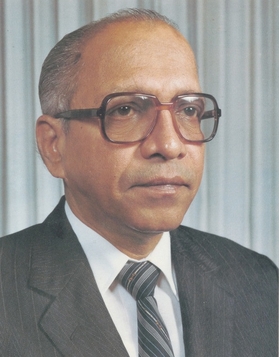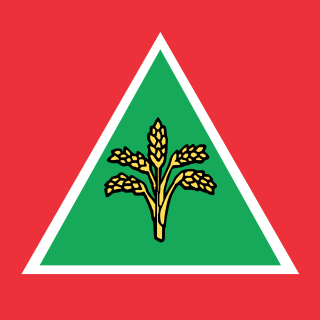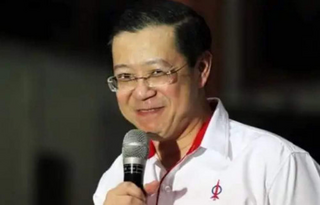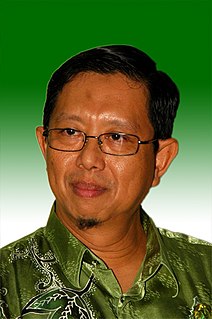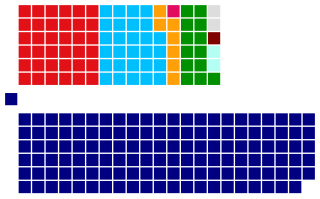Democratic Action Party Parti Tindakan Demokratik ڤرتي تيندقن ديموكراتيک 民主行动党 ஜனநாயக செயல் கட்சி | |
|---|---|
 | |
| Abbreviation | DAP |
| Chairperson | Tan Kok Wai |
| Secretary-General | Lim Guan Eng |
| Parliamentary Leader | Loke Siew Fook |
| Deputy Chairperson | Gobind Singh Deo |
| Vice Chairpersons | Chow Kon Yeow M. Kulasegaran Tengku Zulpuri Shah Raja Puji Stephen Wong Tien Fatt Chong Chieng Jen |
| Deputy Secretaries-General | Teresa Kok Nga Kor Ming V. Sivakumar |
| Founder | Chen Man Hin Devan Nair |
| Founded | 11 October 1965 |
| Legalised | 18 March 1966 |
| Split from | People's Action Party (PAP) |
| Headquarters | Jalan Yew (off Jalan Pudu), 55100 Kuala Lumpur, Malaysia |
| Newspaper | The Rocket RoketKini |
| Youth wing | DAP Socialist Youth (DAPSY) Leader: Lee Chuan How |
| Women's wing | Wanita DAP Leader: Chong Eng |
| Membership (2015) | 450,000 |
| Ideology | Social democracy Progressivism Left-wing nationalism Secularism Multiracialism [1] |
| Political position | Centre-left |
| National affiliation | Gagasan Rakyat (1990–1996) Barisan Alternatif (1999–2004) Pakatan Rakyat (2008–2015) Pakatan Harapan (2015–present) |
| International affiliation | Progressive Alliance |
| Colours | Red, white, blue |
| Slogan | Malaysian Malaysia and Malaysian First |
| Anthem | Berjuang Untuk Rakyat Malaysia! (Fighting for Malaysians!) |
| Dewan Negara (Senate): | 6 / 70 |
| Dewan Rakyat (House of Representatives): | 42 / 222 |
| Dewan Undangan Negeri (State Assembly): | 109 / 592 |
| Party flag | |
 | |
| Website | |
| www | |
 |
|---|
| This article is part of a series on the politics and government of Malaysia |
|
The Democratic Action Party, or DAP (Malay : Parti Tindakan Demokratik, Chinese :民主行动党, Tamil : சனநாயக செயல் கட்சி), is a multi-racial, centre-left Malaysian political party advocating social democracy and secularism, social justice, progressivism, and multi-racialism. [2] One of the four component parties of the Pakatan Harapan (PH) government coalition since 2018, it was previously in the opposition for over 50 years.
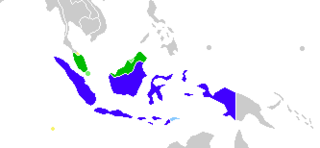
Malay is a major language of the Austronesian family spoken in Brunei, Indonesia, Malaysia, and Singapore. A language of the Malays, it is spoken by 290 million people across the Strait of Malacca, including the coasts of the Malay Peninsula of Malaysia and the eastern coast of Sumatra in Indonesia, and has been established as a native language of part of western coastal Sarawak and West Kalimantan in Borneo. It is also used as a trading language in the southern Philippines, including the southern parts of the Zamboanga Peninsula, the Sulu Archipelago, and the southern predominantly Muslim-inhabited municipalities of Bataraza and Balabac in Palawan.

Chinese is a group of related, but in many cases not mutually intelligible, language varieties, forming the Sinitic branch of the Sino-Tibetan language family. Chinese is spoken by the Han majority and many minority ethnic groups in China. About 1.2 billion people speak some form of Chinese as their first language.

Tamil is a Dravidian language predominantly spoken by the Tamil people of India and Sri Lanka, and by the Tamil diaspora, Sri Lankan Moors, Douglas, and Chindians. Tamil is an official language of two countries: Sri Lanka and Singapore and official language of the Indian state Tamil Nadu. It has official status in the Indian state of Tamil Nadu and the Indian Union Territory of Puducherry. It is used as one of the languages of education in Malaysia, along with English, Malay and Mandarin. Tamil is spoken by significant minorities in the four other South Indian states of Kerala, Karnataka, Andhra Pradesh and Telangana and the Union Territory of the Andaman and Nicobar Islands. It is one of the 22 scheduled languages of India.
Contents
- History
- Formation
- Early electoral successes
- 1995–2008
- 2008–2015
- 2015–present
- Party symbols
- Party logo
- Ubah mascot
- Songs
- Leadership structure
- National
- List of DAP leaders
- Elected representatives
- Dewan Negara (Senate)
- Dewan Rakyat (House of Representatives)
- Dewan Undangan Negeri (State Legislative Assembly)
- General election results
- State election results
- Miscellaneous
- Controversy
- Allegations of racism and chauvinism
- 2012 party election fiasco
- GE-13 logo issue
- See also
- References
- Notes
- External links
The party's vision is to establish a peaceful and prosperous social democracy that can unite its disparate races and diverse religions and cultures, based on the Malaysian Malaysia concept of forging a Malaysian race grounded on universal moral values, offering equal access and opportunity, upholding democratic governance and the rule of law, creating wealth and distributing it equitably, and fighting corruption. [3]
Social democracy is a political, social and economic ideology that supports economic and social interventions to promote social justice within the framework of a liberal democratic polity and a capitalist economy. The protocols and norms used to accomplish this involve a commitment to representative and participatory democracy, measures for income redistribution and regulation of the economy in the general interest and welfare state provisions. Social democracy thus aims to create the conditions for capitalism to lead to greater democratic, egalitarian and solidaristic outcomes. Due to longstanding governance by social democratic parties and their influence on socioeconomic policy development in the Nordic countries, in policy circles social democracy has become associated with the Nordic model in the latter part of the 20th century.
The phrase "Malaysian Malaysia" was originally used in the early 1960s as the rallying motto of the Malaysian Solidarity Council, a confederation of political parties formed to oppose Article 153 of the Constitution of Malaysia. This article specifically provides special quotas for the Malay and other indigenous peoples of Malaysia in admission to the public service, awarding of public scholarships, admission to public education institutions and the awarding of trade licences. It also authorises the government to create Malay monopolies in particular trades. The given reason for this affirmative action was carried out because the Malays and other aborigines were discriminated against employment during over 100 years of British colonial rule. British colonised Malaysia from 1786 to 1957 after the Anglo-Dutch Treaty of 1824. During these years, the British refused to employ Malay Indonesians and Malaysians, preferring to employ only Chinese and Indians. The British adopted a similar policy in their other colonies, bringing large numbers of Indians to Fiji, British Guiana, the Uganda Protectorate and Trinidad and Tobago, rather than employ the indigenous population.
The DAP usually draw much of their support from secular and liberal voters with a stable electorate from voters of big cities, coastal regions, professional middle-class, and working class. The party's strongholds are primarily in the urban and semi-urban areas of Penang, Perak, Selangor, Negeri Sembilan, Johor, Malacca and the Federal Territory of Kuala Lumpur. In the 2018 Malaysian general election, DAP contested in 47 federal constituencies and won 42 seats and 101 out of 104 state seats contested, most under the ticket of its ally People's Justice Party (PKR), representing a win rate of 95%, the highest among the major political parties contesting.
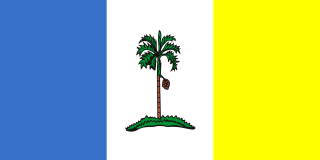
Penang is a Malaysian state located on the northwest coast of Peninsular Malaysia, by the Malacca Strait. It has two parts: Penang Island, where the capital city, George Town, is located, and Seberang Perai on the Malay Peninsula. The second smallest Malaysian state by land mass, Penang is bordered by Kedah to the north and the east, and Perak to the south. Currently, Penang is home to Southeast Asia's Longest bridge connecting the island to mainland.

Perak, also known by its honorific Darul Ridzuan or "Abode of Grace", is one of the thirteen states of Malaysia, and the fourth-largest one. It borders Kedah at the north; Thailand's Yala Province to the northeast; Penang to the northwest; Kelantan and Pahang to the east; Selangor to the south, and the Straits of Malacca to the west.
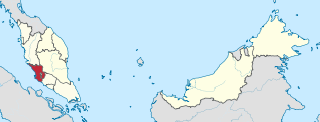
Selangor, also known by its Arabic honorific Darul Ehsan, or "Abode of Sincerity", is one of the 13 states of Malaysia. It is on the west coast of Peninsular Malaysia and is bordered by Perak to the north, Pahang to the east, Negeri Sembilan to the south and the Strait of Malacca to the west. Selangor surrounds the federal territories of Kuala Lumpur and Putrajaya, both of which were previously part of it.

